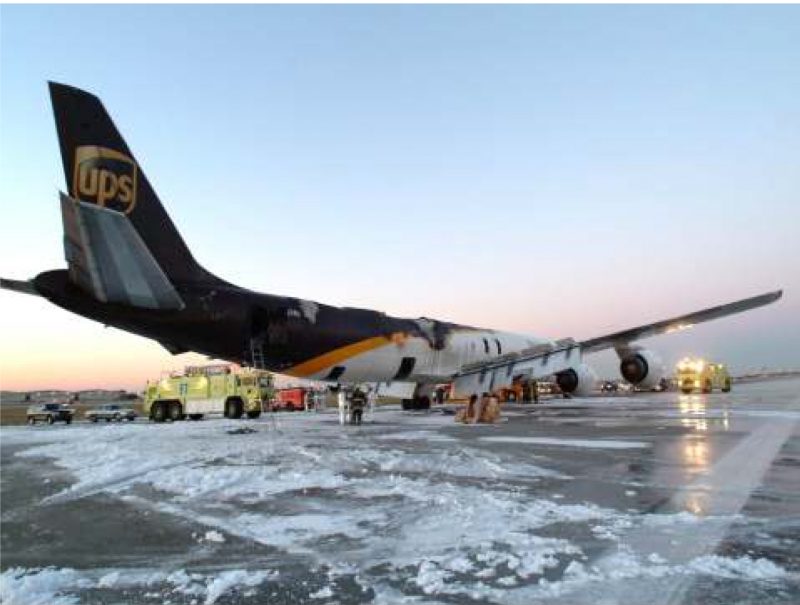World Cargo Symposium 2022 Moving from ‘talk to action’, experts underscore stakeholder collaboration
Attended by nearly 1,300 participants from nearly 70 countries, the resolve has been to work collectively towards achieving carbon net zero by 2050; expand sustainability footprint; accelerate digitalization and attract talent to the sector.
The 15th edition of the World Cargo Symposium (WCS), the largest and most prestigious annual event of the International Air Transport Association (IATA), held from September 27 to 29 in London, had a distinct refrain – to move the industry from ‘talk to action’.
Attended by nearly 1 , 3 0 0 participants from nearly 70 countries, the resolve has been to
work collectively to wards achieving carbon net zero by 2050; expand sustainability footprint; accelerate digitalization and attract talent to the sector
‘Talk to action’, being the leit motif of the event, the moderator of one of the panel sessions, Celine Hourcade, Founder and CEO of Change Horizon, did not mince words, asking heads of three major cargo associations on whether ‘talk of collaboration was just blah, blah’.
The triad – Brendan Sullivan, Global Head of Cargo, IATA; Steven Polmans, Chairman of the Board of The International Air Cargo Association (TIACA) and Dr. Stephane Graber, Director General of the Federation of International Air Transport Association (FIATA) – explained that while there are some commonalities in their work, yet they are different. However, they vowed to work together in not just the race towards carbon net zero, but also on various fronts to make the cargo supply chain efficient, sustainable and adding to bettering lives.
Tough road ahead, need to prioritize
Credit must go to the event organizers for formatting the event (plenary, panel di s cus s ions , exhibition, workshops, networking etc) that opened up opportunities for the air cargo sector which was coming together on such a platform after a hiatus of nearly two years. The whole event had a focussed approach with four clear themes running – sustainability, digitalisation, safety and security (focus on safely carrying lithium batteries), and talent acquisition and retention. While the exhibitors/delegates seemed gung-ho about the prospects ahead, the message from the event was loud and clear – that the road ahead is going to be tough (global recession, energy crisis, dynamics of digital adoption, continuing Russia-Ukraine conflict) and the urgency to under s t and priorities and to align accordingly.
Setting the tone for the WCS, David Shepherd, Managing Director, IAG Cargo said the sector needs to work on reducing usage of singleuse plastic; electrification of vehicles on airside; harnessing solar; and increasing the percentage of women workforce.
Warning that airlines would continue to be the weakest link in the value chain, Marie Owens Thomson, Chief Economist at IATA said there is need to drive synergies with other forms of transportation. The sector is resilient,
but it needs to improve its resilience and robustness, considering that global economic slowdown is expected to continue in to 2023; interest rates going up ; and less accommodate monetary policies across countries.
On the key outcomes from WCS, Michael Steen, Cargo Advisory Council Chair & CEO Atlas Air said the air cargo sector is on a good path and that the momentum needs to be sustained. The pace of digitalisation has to be stepped up, so also messaging about sustainability as regulations alone will not drive success. Echoing similar thoughts, Andrea Bianchi, Cargo Advisory Council Vice Chair & LATAM Head of Cargo said at the macro level there is alignment, but that has to percolate down to all levels. One issue that the sector needs to urgently address is the massive use of plastics.
The priorities, outlined at WCS thus remain:
1. Achieving net zero carbon emissions by 2050;
2. Continuing to modernize processes;
3. Finding better solutions to safely carry lithium batteries;
4. Making air cargo attractive to new talent
The road to Net Zero by 2050
In 2021, the aviation industry agreed a balanced plan to achieve net zero CO2 emissions by 2050. A potential scenario for this is:
• 65% through Sustainable Aviation Fuel (SAF)
• 13% from hydrogen and electric propulsion
• 3% from more efficient operations
• 19% through offsets and eventually through carbon capture, as an out-of-sector solution while technology develops.
“SAF is the key to achieving net zero emissions. Airlines used every drop that was available in 2021. And it will be the same this year. The challenge is SAF production capacity. The solution is government incentives. With the right incentives, we could see 30 billion liters of SAF by 2030. That would be a tipping point by 2030 towards our net zero ambition of ample SAF quantities at affordable prices,” said Sullivan.
SAF is scarce and prohibitive
However, during the panel discussion on air cargo’s sustainability mission, there were severe doubts on the availability of sustainable aviation fuel (SAF) which is not only scarce but also highly cost prohibitive. Martin Drew, Senior Vice President, Sales and Cargo, Etihad Aviation Group, said ‘SAF should firstly be available’. That kind of sums up where SAF is, unless, of course, the whole SAF ecosystem miraculously appears from nowhere.
Modernization and efficiency
“The challenges of the COVID crisis gave us confidence that we can change and adapt fast. We need to use that confidence to get even closer to the expectations for modernization that our customers have. And we need to be true to air cargo’s unique selling point and move even faster,” said Sullivan. IATA highlighted two areas where progress was being made: IATA’s ONE Record is making it possible for everyone across the industry’s value chain to see the same information on shipments. Already 156 companies and four customs authorities are using it.
IATA Interactive Cargo Guidance provides a common framework so that tracking devices can monitor the quality and accuracy of conditions of time and temperature sensitive goods. Government support for the modernization agenda through facilitating trade is also critical.
“The Revised Kyoto Convention which brings standardization, technology, predictability and speed to trade facilitation and the World Customs Organization (WCO) SAFE Framework of standards to facilitate and secure trade are major steps forward in supporting global trade. But we are still seeing far too many diverging requirements by governments in areas that should be harmonized by these two tools. This needs to change quickly so we can continue to support global trade—and its vital contributions to economies and the UN Sustainable Development Goals—with modern and efficient air cargo. Universal adoption and implementation will deliver the greatest benefits,” said Sullivan.
Expanding on this point, Turhan Ozen, Chief Cargo Officer, Turkish Airlines, said the industry proved itself in the last two years by quickly modernising the processes, digital adoption etc to help move medicines and other essential items with great speed, flexibility and safety.
There are some commonalities in their work, yet they are different. However, they vowed to work
together in not just the race towards carbon net zero, but also on various fronts to make the cargo
supply chain efficient, sustainable and adding to bettering lives.
Safety, challenge of lithium batteries
Safety, specifically finding better solutions to safely carry lithium batteries was highlighted as a priority for the industry. “We can be proud of the progress that we are making to further improve the safe handling of lithium batteries. For air cargo, this is a top priority. But even the best regulatory structure means nothing if the rules are not followed. Compliance is an issue with the transport of lithium batteries, particularly with the proliferation of new—and inexperienced—entrants in e-commerce activities,” said Sullivan.
There were demands to criminalise the production and shipping of counterfeit lithium batteries as the outcomes of any incident could be catastrophic. IATA has called for regulatory authorities such as EASA and FAA to accelerate development of a test standard that can be used to demonstrate that fire containment pallet covers and fire-resistant containers are capable of withstanding a fire involving lithium batteries.
Government authorities to step up and take responsibility for stopping rogue producers and exporters of lithium batteries. Industry to use technology such as DG Autocheck to more easily and accurately verify that the shipment complies with DG requirements. To embed best practices on the safe carriage of lithium batteries across the value chain, IATA has expanded its CEIV Lithium Battery program to include airlines and shippers.
Talent acquisition and retention
“People are the core of any improvement in what air cargo can deliver. Sadly, we saw thousands of jobs leave the industry during COVID-19, especially cargo handlers. We are now competing for talent in a very tight job market. And when we do find the right and willing talent, training and longer-than-usual security clearance processes delay their entry into the workforce,” said Sullivan.
IATA called for governments to accelerate clearance processes, including those for security, as a short-term solution and longer term to do a better job of attracting, onboarding, and retaining talent. IATA a l so encouraged more cargo carriers to sign on to the industry-wide 25by2025 initiative to promote gender diversity. “The need to create equal opportunities for the female half of the world’ s population is highlighted by the situation today where the industry
is struggling to attract sufficient talent. Achieving an equal gender balance must be core to any longterm talent strategy,” said Sullivan.
Brendan aptly summed up “air cargo had a stellar year in 2021 achieving $204 billion in revenues. At present, however, social and economic challenges are mounting. The war in Ukraine has disrupted supply chains, jet fuel prices are high and economic volatility has slowed GDP growth. Despite this, there are positive developments. Ecommerce continues to grow, COVID restrictions are easing, and high-value specialized cargo products are proving resistant to economic ups-and-downs. Going forward, achieving our net zero commitment, modernizing processes, finding better solutions to safely carry lithium batteries, and making air cargo attractive to new talent are critical.”
IATA has called for regulatory authorities such as EASA and FAA to accelerate development of a test standard that can be used to demonstrate that fire containment pallet covers and fire-resistant containers are capable of withstanding a fire involving lithium batteries.



